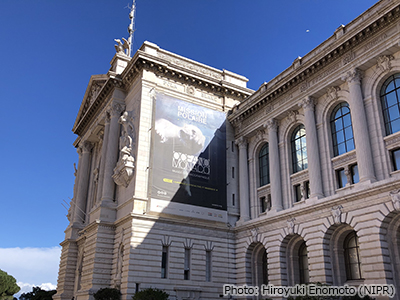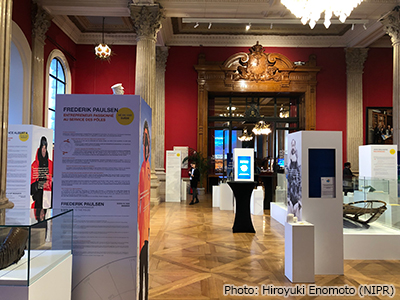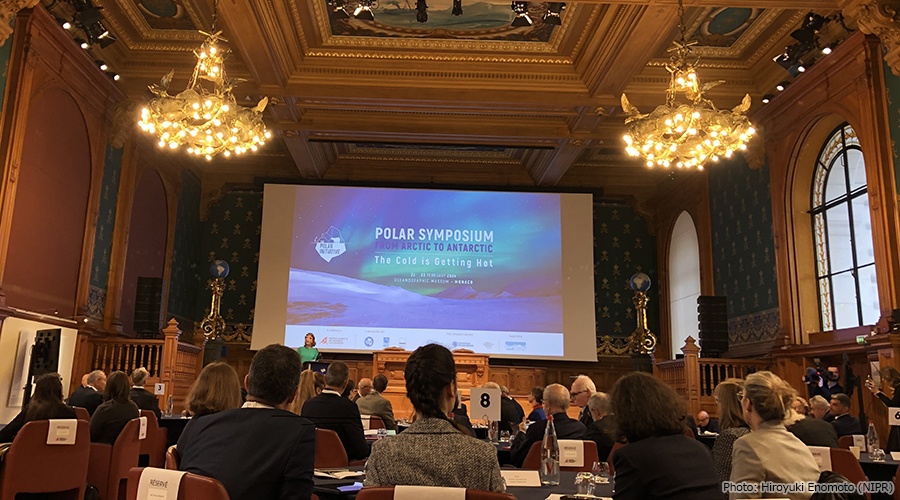Report on The Polar Symposium 2024
Reported by Hiroyuki ENOMOTO (NIPR)
The Albert II Foundation, the International Arctic Science Committee (IASC) and the Scientific Committee for Antarctic Research (SCAR) organized the second scientific symposium on polar change “From the Arctic to the Antarctic” on February 22 and 23, 2024 in Monaco. The polar activities were based on the “Polar Initiative” of Prince Albert II of Monaco inheriting the ideas of Albert I of Monaco, who devoted his efforts to ocean research and education and traveled to the oceans around the world, including the polar regions.
The symposium was held with the aim of better understanding the phenomena common to both the North and South Poles, identifying their impact on the entire planet, and proposing appropriate responses.


At the Oceanography Museum, Prince Albert II, former H.E. President of Iceland Grímson, Vice President Jefferson Cardia Simoes from SCAR, President Henry Burgess and other secretariat members from IASC, and Alfred Wegener Institute (AWI), Norwegian Polar Institute (NPI), British Antarctic Survey (BAS), France, the US, etc. approximately 120 people were participated, including people involved in polar research, WWF, NPOs, the World Economic Forum (WEF), the Sami Council, and journalists.
In his opening speech, Prince Albert II of Monaco emphasized the importance of the polar regions as a precursor to climate change and also spoke about issues that should be addressed jointly internationally, environmental conservation and economic activities. Additionally, a panel discussion and group discussions were held.
The symposium had two themes: developing and collaborating on bipolar initiatives for the next decade and adaptation and mitigation strategies for emerging polar challenges related to the impacts of human activities such as fishing, tourism, and mining. The theme focus possible increased synchronized international efforts over the next decade, the importance of continuing and developing cross-border cooperation, and action-oriented communication on polar research results and their global implications. These themes also lead to the IPY2032/33 and ICARP IV.
In terms of society, economy, and tourism, the interests and issues of the Antarctic and the Arctic are different. In the Arctic, tourism leads to an understanding of local culture and the effectiveness of local economic activities, visits, and contacts were mentioned.
There is a perspective of understanding the culture and issues of indigenous peoples. Meanwhile, the Antarctic group’s discussion brought up overtourism and the need for education and outreach to prevent it.

At the meeting, opinions were exchanged about WEF and AEF (Arctic Economic Council)’s economic activities and involvement in polar regions, as well as the research and educational support activities of multiple foundations.
Early Career Scientists (ECSs) from Association of Polar Early Career Scientists (APECS) were invited to the conference, and an award ceremony for the fellowship program for young people’s activities was also held during the meeting.
